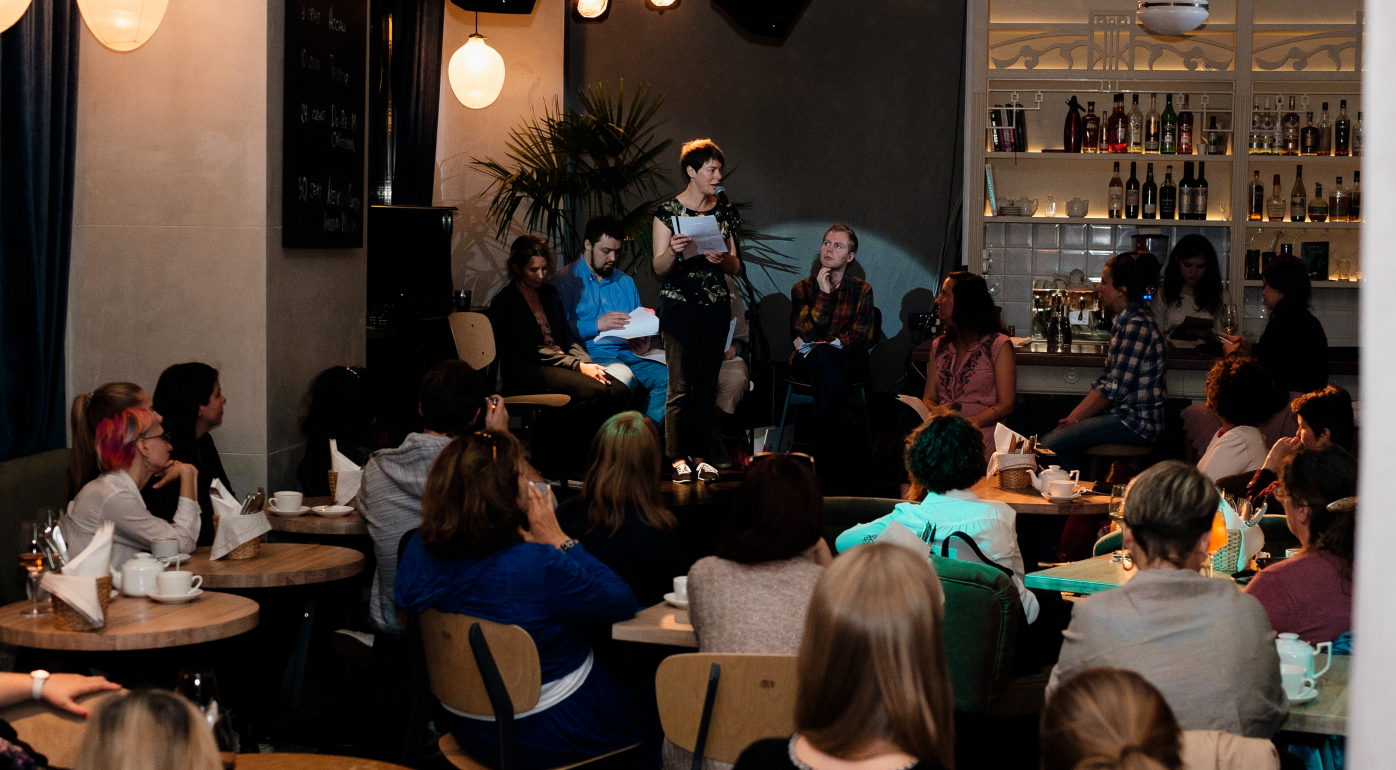Time has flown since our wonderful trip to Russia in early September, and yet my memories of the people, places, food, drink and poems are still remarkably fresh in my mind. (O kvass, you strange sparkling fermented bread drink which one has sometimes in cold soup, how I miss you…) The trip to Russia was thanks to a project the Scottish Poetry Library is working on with the British Council and the Edwin Morgan Trust to celebrate the UK-Russia Year of Language and Literature 2016 and the global Shakespeare Lives programme commemorating the 400th anniversary of his death.
I had the privilege of facilitating translation workshops with Scottish poets Christine De Luca, Jen Hadfield and Stewart Sanderson and our three Russian poet partners; Marina Boroditskaya, Grigorii Kruzhkov and Lev Oborin. We worked for three concentrated days at the Dostoevsky Library in Moscow, and were beautifully looked after by our wonderful colleagues from the British Council. We were also joined by translators and academics (and poets!) Rose France and Anne Stokes. Rose assisted us by supplying the literal translations of the poems into each language for the poets to work from, and Anne was observing and advising as she is currently researching this process of workshop translation.
It is always interesting to witness this type of translation; when the poets on both sides are living, creative people who can discuss and debate the meaning of the poems and the nuances of words. Translation is one of the closest means of reading, and such an amazing way to delve into the deepest complexities of a poem. While one often encounters words, ideas and images that are untranslatable in a literal sense, much of the fun of translating lies in finding creative solutions to the challenges that arise. What bird or tree from a particular ecosystem would give the same sense in a poem set in a new place? Should I preserve this Russian street name or find an ‘equivalent’ street in Scotland? Then there are questions of form and meaning. If the poems in one language rhyme, for instance, and the translator wishes to maintain the rhyme scheme in the new language, will they have to sacrifice meaning to achieve this, and vice versa? Often there are many compromises to be made, but it was especially satisfying to hear new poems carrying authentic sound and intention into the new language (Russian, English and Shetlandic) without losing any of the vital energy of the original.
We read the poems and translations at events in Moscow and St. Petersburg to packed audiences. It really felt as if we had built bridges between the poets and the literatures of the two countries, and we can’t wait for the Russian poets to visit us in Scotland next year for the second half of the exchange. Maybe they’ll even bring some kvass!
Poets Marina Boroditskaya and Christine De Luca
Poets Grigory Kruzhkov and Stewart Sanderson
Poets Jen Hadfield and Lev Oborin
Jennifer Williams is Programme Manager at the Scottish Poetry Library in Edinburgh. The exchange was organised by the British Council in co-operation with The Scottish Poetry Library (UK). The project was supported by the Edwin Morgan Trust (UK) and was part of the British Council's UK - Russia Year of Language and Literature 2016 and the Shakespeare Lives programme. This is the first instalment of a Sonnet Exchange, with a return trip to Scotland which will take place in 2017.

